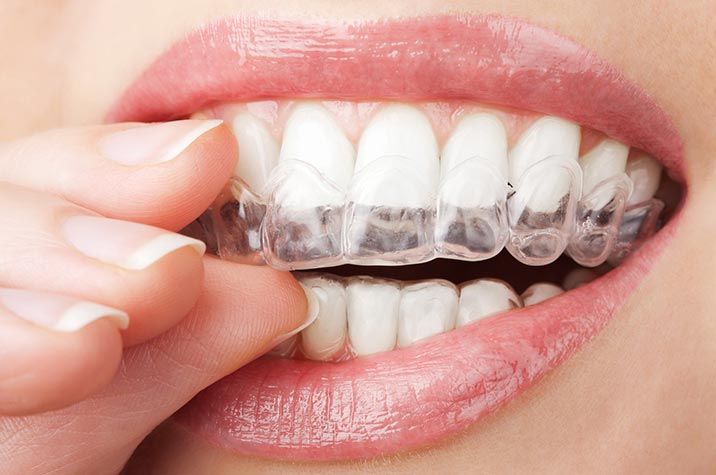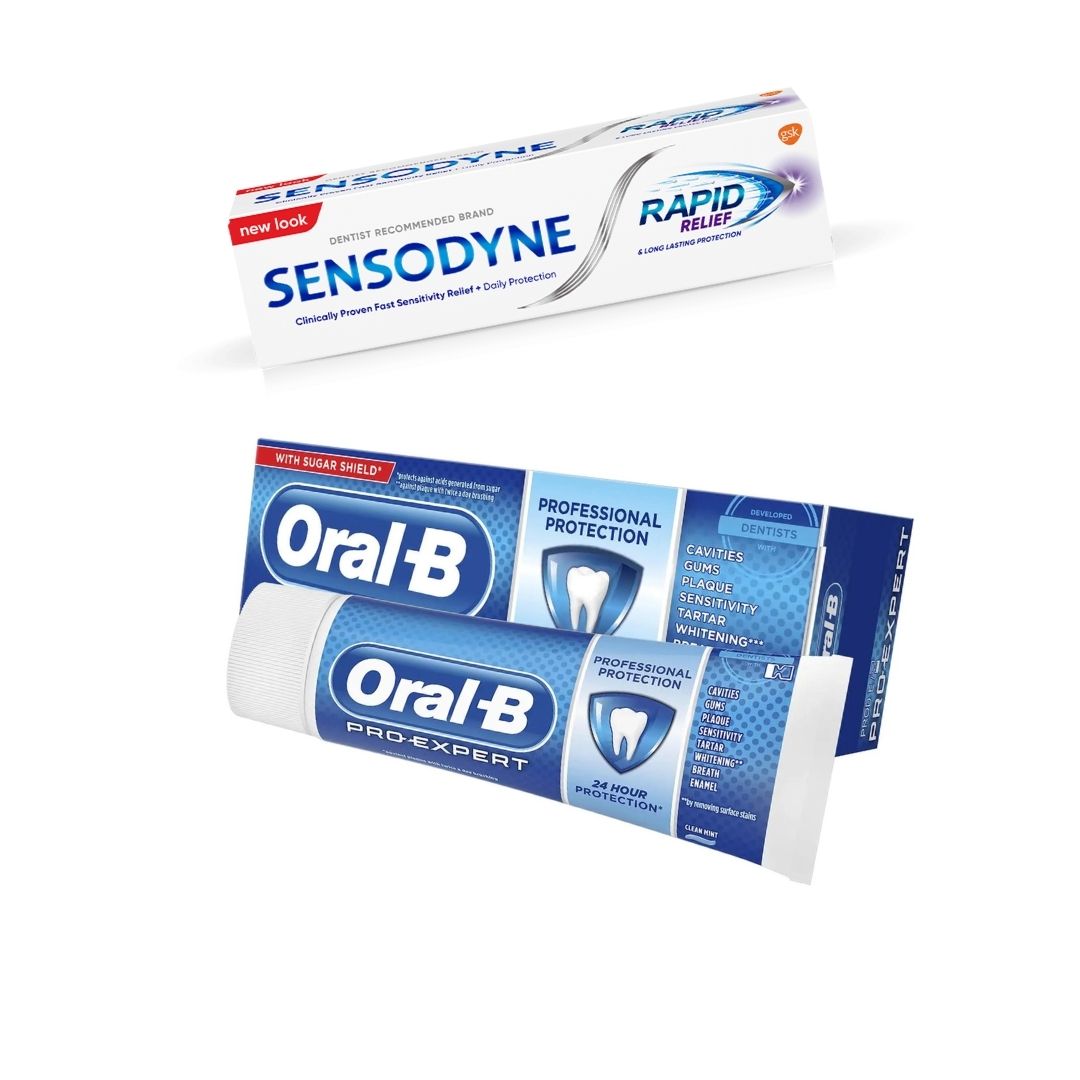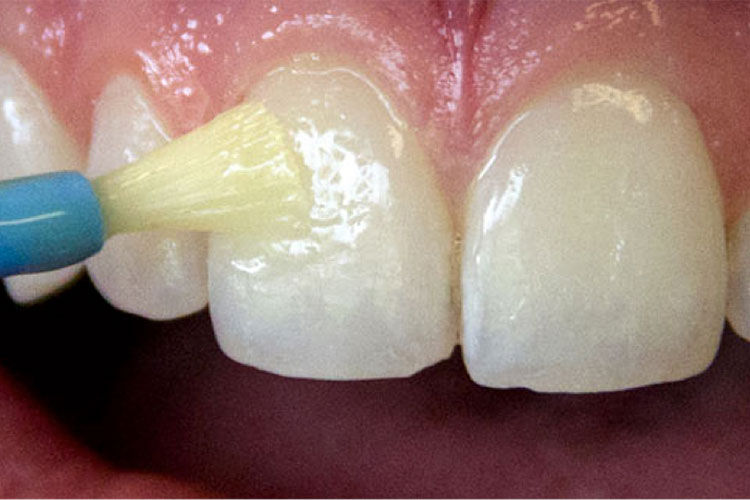Winter Tooth Sensitivity: How to Prevent and Manage Cold-Weather Tooth Sensitivity

Winter is a magical time of year filled with cozy sweaters, hot cocoa, and crisp, snowy days. But for some of us, it also brings along a less-than-magical sensation: tooth sensitivity. As the temperature drops, so does our tolerance for hot and cold foods, leaving us wincing with discomfort. Fear not, though! In this guide, we'll explore the ins and outs of winter tooth sensitivity and arm you with the knowledge to keep your smile shining all season long.
Understanding Winter Tooth Sensitivity
Before we dive into prevention and management tips, let's unpack why winter tooth sensitivity rears its chilly head. Our teeth are porous, containing tiny tubules that lead to nerve endings. When exposed to cold temperatures, these tubules contract, triggering nerve pain and discomfort. Factors like enamel erosion, gum recession, and dental decay can exacerbate sensitivity, making winter a particularly challenging time for those prone to dental woes.
Prevention Tips for Winter Tooth Sensitivity
1. Maintain Good Oral Hygiene:
The cornerstone of dental health, good oral hygiene habits are your first line of defense against winter tooth sensitivity. Brush your teeth twice daily for two minutes each time, using fluoride toothpaste to strengthen enamel and protect against decay. Don't forget to floss at least once a day to remove plaque and food particles from between your teeth and along the gumline.
2. Use a Soft-Bristled Toothbrush:
While you might think that a firm toothbrush gives you a better clean, it can actually do more harm than good. Firm bristles can be abrasive, leading to enamel wear and increased sensitivity over time. Opt for a soft-bristled toothbrush instead, which is gentle on your teeth and gums while still effectively removing plaque and debris.
3. Switch to Sensitivity Toothpaste (Medicine for sensitive teeth):
Sensitivity toothpaste is specially formulated to help alleviate discomfort associated with sensitive teeth. These toothpastes typically contain compounds like potassium nitrate or strontium chloride, which work by blocking the pathways that transmit pain signals from the surface of your teeth to the nerves underneath. Incorporate sensitivity toothpaste into your daily oral care routine for lasting relief from winter tooth sensitivity.
4. Limit Acidic and Sugary Foods:
Your diet plays a significant role in your dental health, especially during the winter months when sensitivity tends to flare up. Acidic foods and beverages, such as citrus fruits, sodas, and wine, can erode enamel and expose the underlying dentin, leading to increased sensitivity. Similarly, sugary treats provide fuel for harmful bacteria in your mouth, which can contribute to tooth decay and sensitivity. Enjoy these indulgences in moderation and be sure to rinse your mouth with water afterward to help neutralize acids and reduce their impact on your teeth.
5. Wear a Mouthguard:
If you suffer from bruxism, or teeth grinding, wearing a mouthguard can help protect your teeth from damage and alleviate sensitivity. Grinding your teeth can wear down enamel, making your teeth more susceptible to temperature changes and discomfort. A custom-fitted mouthguard, obtained through your dentist, provides a cushioning barrier between your upper and lower teeth, preventing them from coming into direct contact and reducing the risk of damage.

6. Stay Hydrated:
Hydration is key to maintaining a healthy mouth and reducing the risk of winter tooth sensitivity. Drinking an adequate amount of water throughout the day helps stimulate saliva production, which plays a crucial role in neutralizing acids, washing away food particles, and remineralizing enamel. Aim to drink at least eight glasses of water per day and limit your consumption of dehydrating beverages like coffee and alcohol, which can contribute to dry mouth and increased sensitivity.
By implementing these prevention tips into your daily routine, you can help safeguard your smile against winter tooth sensitivity and enjoy the season to its fullest. Remember, proactive care is the best defense against dental discomfort, so prioritize your oral health today for a brighter, more comfortable tomorrow.
Managing Winter Tooth Sensitivity
1. Avoid Extreme Temperatures:
When you're experiencing winter tooth sensitivity, it's important to be mindful of the temperature of the foods and beverages you consume. Steer clear of hot beverages like coffee and tea, as well as ice-cold treats such as ice cream and popsicles. Instead, opt for lukewarm or room-temperature options to minimize discomfort and prevent further irritation to sensitive teeth.
2. Medicines for Sensitive Teeth:
Over-the-counter desensitizing toothpaste, gels, and rinses can provide temporary relief from winter tooth sensitivity by blocking pain signals and soothing irritated nerves. These products typically contain active ingredients like potassium nitrate or fluoride, which work to desensitize nerve endings and strengthen enamel over time. Incorporate them into your daily oral care routine for ongoing protection against sensitivity.

3. Apply Fluoride Gel:
For more severe cases of winter tooth sensitivity, your dentist may recommend prescription fluoride gels or foams to help strengthen enamel and reduce sensitivity. Applied directly to the surface of your teeth, fluoride treatments work by remineralizing weakened enamel and forming a protective barrier against temperature changes and external irritants. Your dentist can provide personalized recommendations based on the severity of your sensitivity and overall oral health.

4. Practice Proper Brushing Techniques:
While brushing your teeth is an essential part of maintaining good oral hygiene, it's important to do so gently, especially if you're experiencing winter tooth sensitivity. Avoid using excessive force or scrubbing motions, as this can further irritate sensitive teeth and contribute to enamel wear. Instead, use a soft-bristled toothbrush and gentle, circular motions to clean your teeth and gums effectively without causing additional discomfort.
5. Consider Professional Treatments:
If at-home remedies and preventive measures fail to provide relief from winter tooth sensitivity, consider scheduling an appointment with your dentist for professional treatment options. In-office procedures such as dental sealants, fluoride varnishes, or bonding agents can help seal exposed dentin, strengthen enamel, and reduce sensitivity to cold temperatures. Your dentist will assess your individual needs and recommend the most appropriate course of action to address your specific concerns.
6. Visit Your Dentist Regularly:
Regular dental check-ups are essential for maintaining optimal oral health and addressing any underlying issues that may be contributing to winter tooth sensitivity. During your routine exams, your dentist will evaluate the health of your teeth and gums, identify areas of concern, and recommend appropriate treatments or preventive measures to help alleviate sensitivity and protect your smile. By staying proactive about your dental care, you can prevent minor issues from escalating into more serious problems and enjoy a comfortable, pain-free winter season.
Don't let winter tooth sensitivity dampen your spirits or detract from your enjoyment of the season. With proper prevention and management strategies, you can keep your smile healthy, happy, and pain-free all winter long. If you're experiencing persistent or severe sensitivity, don't hesitate to reach out to your dentist for personalized care and guidance. Your smile deserves the best care possible, even in the chilliest of seasons.
Finding Relief at Dental Clinic near me
If winter tooth sensitivity is putting a damper on your season, don't hesitate to reach out to a dental clinic near me for medicine for sensitive teeth. Whether you're in need of a routine cleaning or specialized treatment, their team of experts is equipped to help you reclaim your comfort and confidence.
Remember, sensitivity to cold weather is common, but it doesn't have to detract from your winter wonderland experience. By following these tips and seeking professional guidance and medicine for sensitive teeth when needed, you can enjoy all the joys of the season with a smile that's as bright as freshly fallen snow.
Stay warm, stay cozy, and keep smiling!
For more tips and insights on dental care, visit [dental clinic near me] and explore their range of services tailored to your needs. Don't let winter tooth sensitivity hold you back—take charge of your dental health today!
- A-3, Natraj Nagar near Imli Phatak, Jaipur-302015
- +91 9945826926
- contact@amddentalclinic.com

Why Tooth Fractures Are Rising: A Modern Dental Concern You Shouldn’t Ignore
Discover why tooth fractures are increasing and how AMD Dental Clinic can help protect your smile. Learn causes, prevention tips, and expert solutions today!

Vertical Tooth Fractures: Diagnosis, Treatment & Early Warning Signs — Insights from Dr. Mili Gupta (MDS, Prosthodontist & Implantologist)
Discover the causes, symptoms, and treatments for vertical tooth fractures. Get expert insights from Dr. Mili Gupta at AMD Dental Clinic. Read more today!

Who is the best dentist in Jaipur for dental implant treatment
Discover the best dentist in Jaipur for dental implants! Learn why AMD Dental Clinic, led by Dr. Mili Gupta, is trusted for expert, lasting care.

